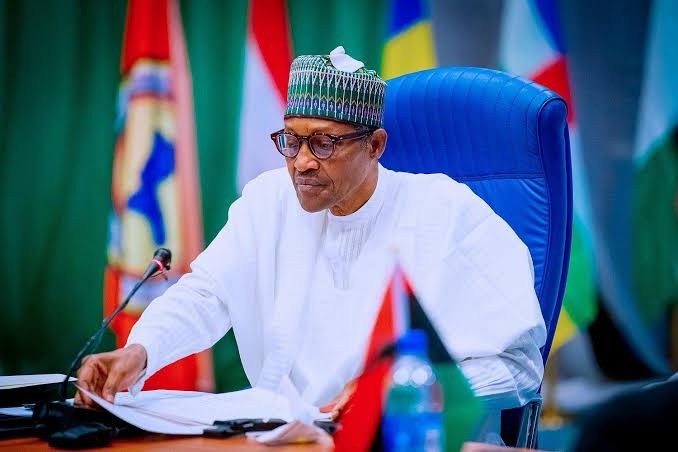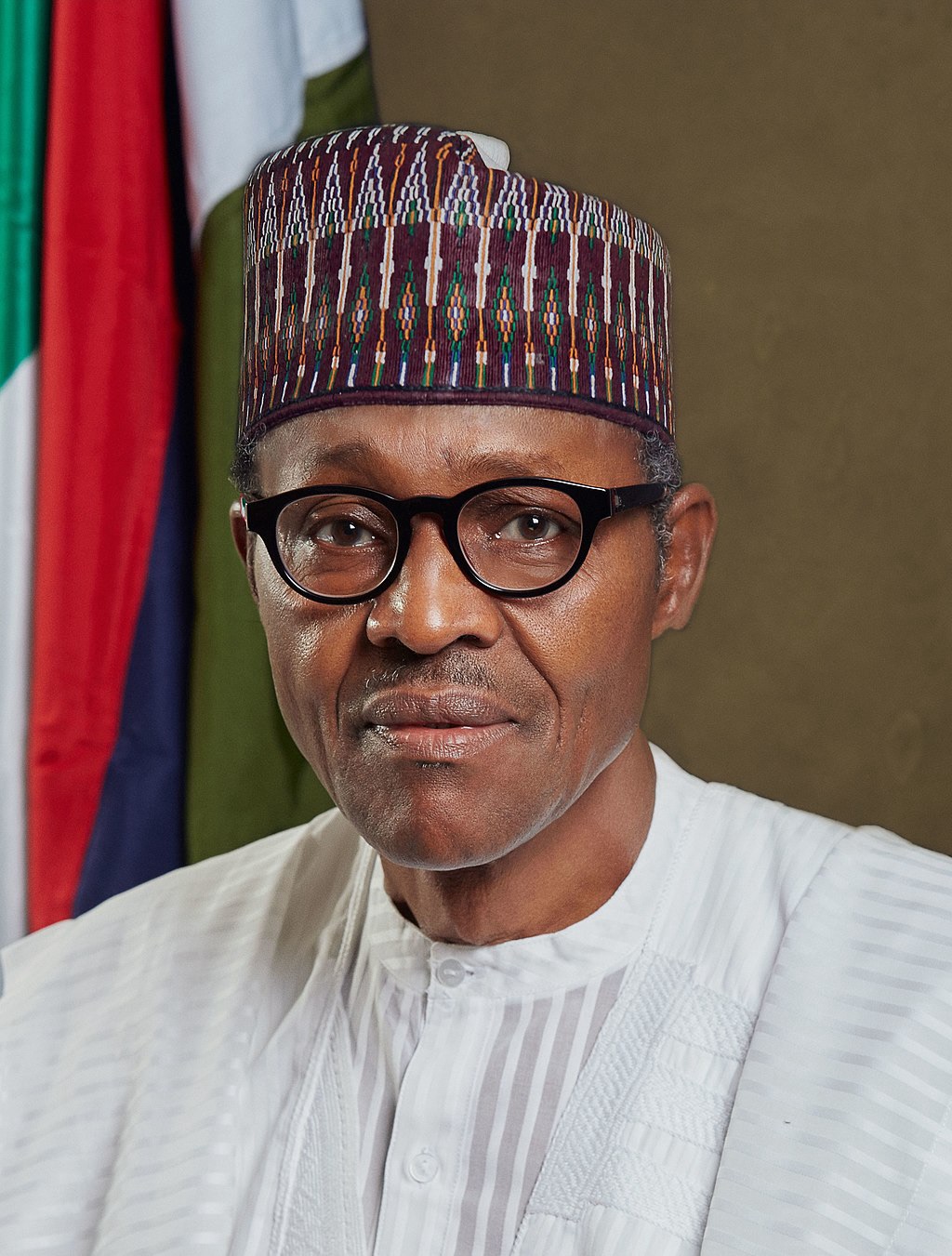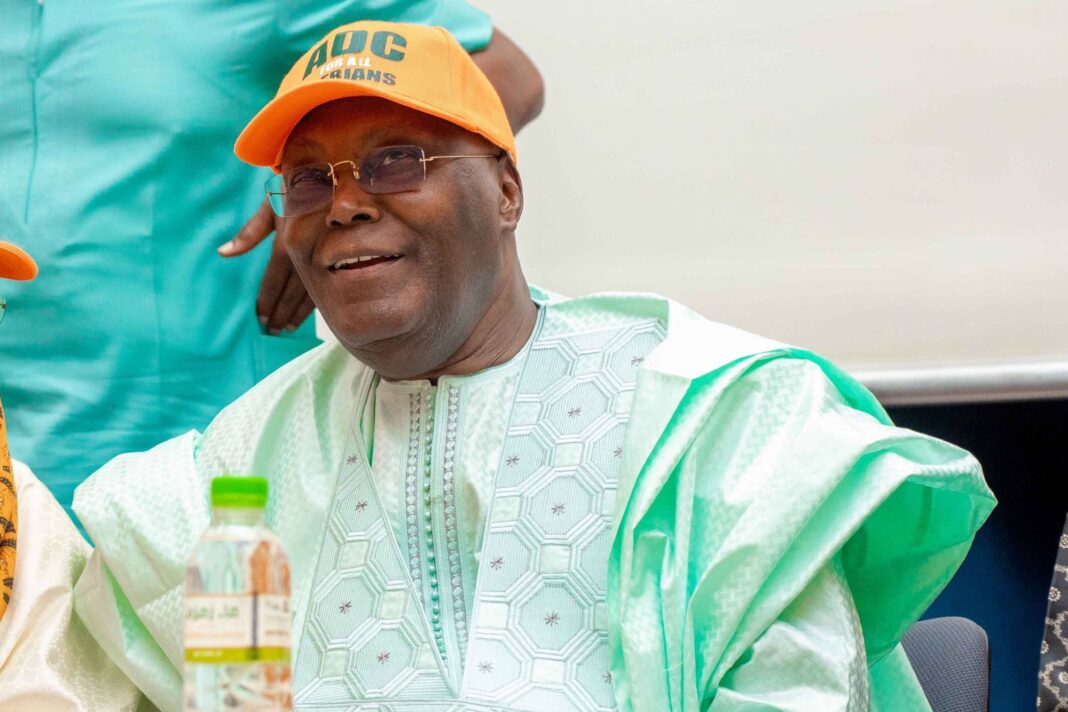Early Life
Muhammadu Buhari was born on December 17, 1942, in Daura, a historic town in present-day Katsina State, northern Nigeria. He was the 23rd child of his father, Mallam Hardo Adamu, a Fulani chief, and his mother, Zulaihat. Buhari lost his father at a young age and was raised by his mother, whose influence shaped much of his early discipline and character.
Growing up in a modest home, Buhari experienced firsthand the realities of rural life in northern Nigeria. This background would later inform his populist appeal and his political focus on the poor and underserved communities.

Former President Muhammadu Buhari
Education and Military Career
Buhari began his formal education at the Katsina Provincial Secondary School (now Government College Katsina), where he showed promise in leadership and discipline. In 1962, he was admitted to the Nigerian Military Training College (now the Nigerian Defence Academy) in Kaduna. He continued his military training in the United Kingdom, attending the Mons Officer Cadet School in Aldershot and later the prestigious United States Army War College.
He served in various military capacities throughout the 1960s and 1970s, including during the Nigerian Civil War. By 1975, he had risen to the rank of Colonel and became Military Governor of the North-Eastern State. He later served as the Federal Commissioner for Petroleum and Natural Resources under the Murtala Mohammed administration, where he helped establish the Nigerian National Petroleum Corporation (NNPC).
Military Rule (1983–1985)
On December 31, 1983, Buhari came to power through a military coup that overthrew the civilian government of President Shehu Shagari. He became Nigeria’s Head of State, a position he held until August 1985, when he was overthrown in another coup led by General Ibrahim Babangida.
Buhari’s military regime was known for its “War Against Indiscipline”, a campaign aimed at restoring order, accountability, and civic responsibility in public life. While some praised his tough stance on corruption and economic mismanagement, others criticized the regime’s heavy-handedness, media censorship, and widespread human rights abuses.
Return to Civilian Politics
After a long period of political quiet, Buhari re-emerged in the 2000s as a civilian political figure. He contested the presidency three times—in 2003, 2007, and 2011—under various opposition platforms but was defeated each time. His persistent efforts paid off in 2015, when he won the presidential election under the All Progressives Congress (APC), defeating incumbent President Goodluck Jonathan. He was re-elected in 2019 for a second and final term.
Buhari’s return marked the first democratic transfer of power from an incumbent to an opposition candidate in Nigeria’s history—a milestone that reinforced the country’s democratic credentials.
Presidency (2015–2023)
Buhari’s presidency focused on three key pillars: anti-corruption, security, and economic diversification. His government launched several anti-corruption initiatives, prosecuted high-profile figures, and sought to recover looted public funds. On the security front, Buhari made early gains against Boko Haram insurgents, though new threats such as banditry and farmer-herder conflicts worsened over time.
Economically, Nigeria experienced two recessions during his tenure—once in 2016 and again in 2020—largely due to falling oil prices and the COVID-19 pandemic. However, the administration invested in infrastructure, including roads, railways, and power projects. The government also initiated social investment programs like the N-Power and Conditional Cash Transfer schemes aimed at reducing poverty.
Despite these efforts, Buhari’s presidency faced criticism for sluggish economic growth, rising inflation, high unemployment, and perceived ethnic favoritism in federal appointments.
Legacy and Post-Presidency
Muhammadu Buhari stepped down from office in May 2023, handing over power peacefully after completing two terms. His tenure left a mixed legacy. While supporters credited him for bringing a sense of order, personal integrity, and infrastructural renewal, critics argued that his leadership style was too rigid, and that he failed to unify the nation or significantly improve the economy.
Since leaving office, Buhari has kept a low profile, retiring to his hometown in Daura. He remains a prominent figure in Nigerian and African political history, symbolizing both the promise and complexity of leadership in a rapidly evolving democracy.





